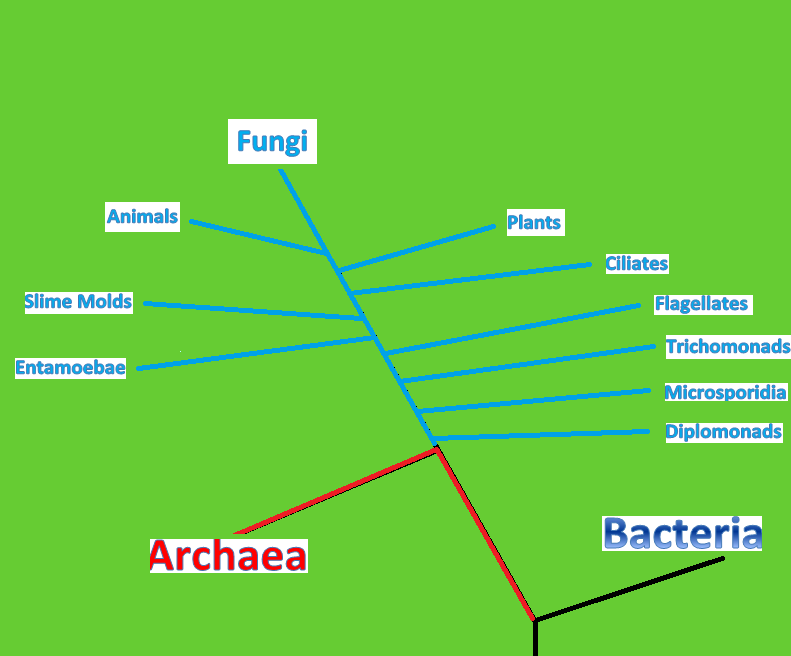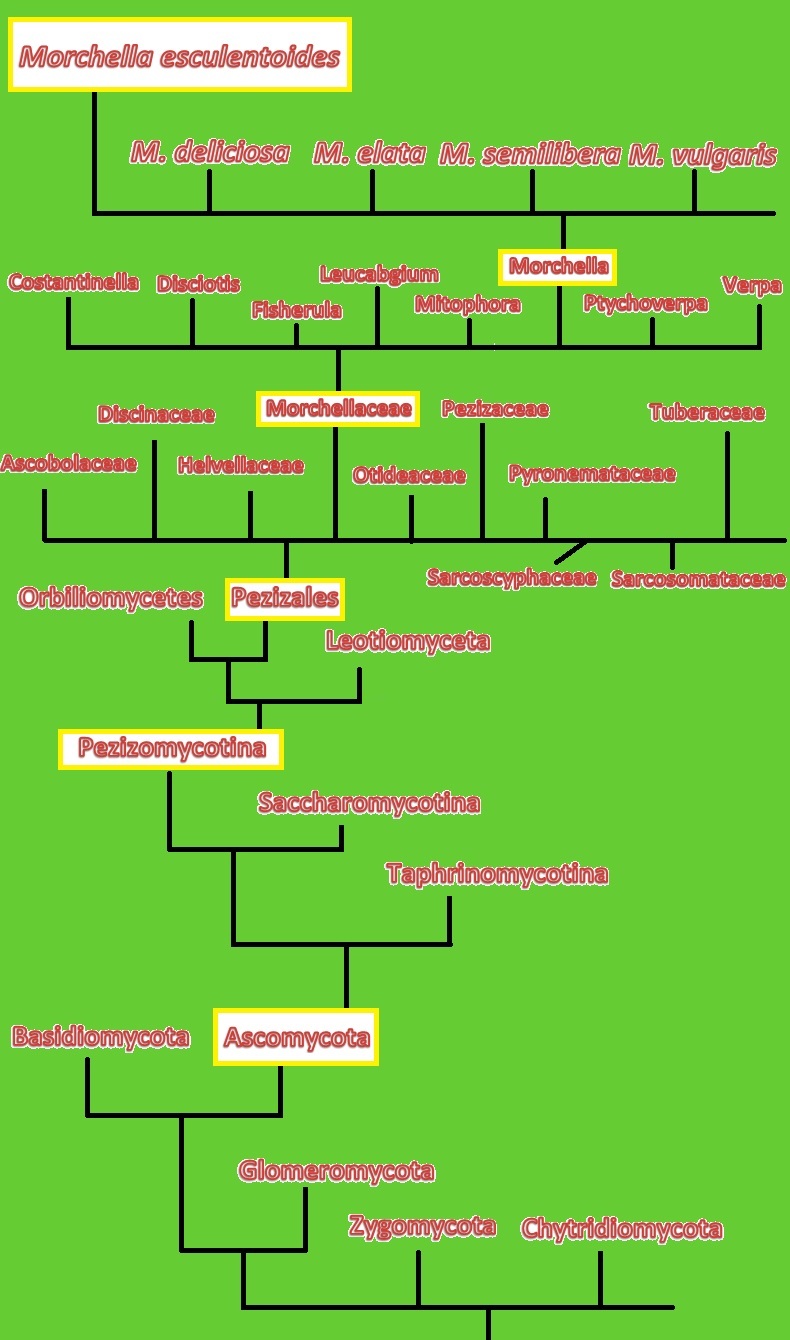Classification
Domain: Eukarya
Kingdom: Fungi
Phylum: Ascomycota
Class: Discomycetes
Order: Pezizales
Family: Morchellaceae
Genus: Morchella
Species: Morchella esculentoides
Domain: Eukarya
The Morel mushroom is within the domain of Eukarya because it has membrane bound organelles as well as a true nucleus with linear DNA which is two traits that all Eukaryotes share.
Kingdom: Fungi
The kingdom for this organism is Fungi. Morels are included in this kingdom because they are non-vascular, have cell walls made of chitin, reproduce by means of spores, produce both asexual and sexual spores depending on conditions and are not motile. The morel shares this group with such organisms as the Oyster Mushroom and the Magic Mushroom.
Phylum: Ascomycota
Morel are part of the Ascomycota or sac fungi. They are part of this because the have sexual spores which are borne internally on a sac called the ascus. The asexual spores are borne externally as conidia. Fungi acquire nutrients in a special way different way. Instead of ingesting then digesting, they digest then ingest the nutrients! Morels share these features with other organisms like the Caterpillar Fungus and The Cyclosporine Producer.
Class: Discomycetes/Pizizomycetes
Morels are within the class of Discomycetes which means their fleshy fruiting bodies are disk-like or cup-shaped. They are put into this class because of the characteristic of their asci being one-walled with pores or slits.
Order: Pezizales
Morels are part of the Pizizales order because of the morphology of their Septa. Septa are the pores within the cells of the asci which increase the flow of the nuclei, ribosomes and mitochondria. Septa are important in the reproductive process of karyogamy (The fusing of two nuclei).
Family: Morchellaceae
Morels are part of this family because of the most important feature that they are edible. They're also included in the family Morchellaceae because of the number of nuclei found in the spores. Their asci also do not turn blue in iodine and have smooth, elliptical spores with homogeneous content. Morels share this family with others such as Verpa and Disciotis.
Genus: Morchella
Morels belong to this genus because they are part of the "True Morels." The "True Morels" are edible and have a distinctive honeycomb-like upper portion that is composed of a network of ridges and pits. The word Morchella comes from the German word morchel which means murshroom.
Species: Morchella esculentoides
Morels belong to the genus Morchella for the same reason as explained above. Esculentoides means "Like the delicious one" so the full meaning of the morel would be something along the lines of "The delicious mushroom". This name is of course fitting because morels do taste delicious.
Common Name: Morel Mushroom
The common names comes from Latin and German. The word morel in Latin means brown and morchel (from Morchella) means mushroom. Thus when Morchella is broken down into Latin and German it translates to "Brown Mushroom" or "Morel Mushroom."
